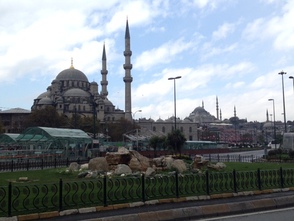 The Istanbul skyline
The Istanbul skyline Trade was supervised by an official - the Eparch - who was responsible for making business run smoothly. The Eparch and his team were like Trading Standards officers: they checked that no one was being ripped off, and that transactions were fair: one of the things they cracked down on was to stop sharp traders swindling their customers.
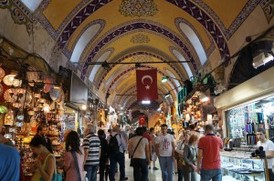 The Grand Bazaar
The Grand Bazaar  Tamper-proof
Tamper-proof 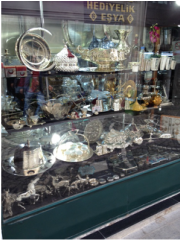 Silver goodies
Silver goodies So I conducted a brief series of experiments, based on trying to see how where I said I came from, what I was wearing, and how interested I looked could condition the prices I was quoted. I set my self the task of trying to buy a Barcelona FC replica shirt - the closest parallel I could think of to the sort of foreign textiles that appear in the Book of the Eparch.
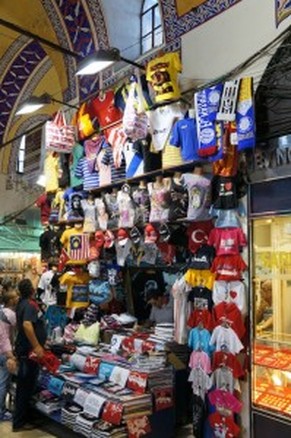 Do you have one with Lionel Messi ?
Do you have one with Lionel Messi ? And in all this, the structure of the markets in medieval Constantinople became clearer, as did the point of the Book of the Eparch. The regulation of trade was not about imperial control, about market supervision or about preventing market abuse (the three elements normally focused on by modern scholars); in fact, it's all about free trade. If you want to buy a fake Bayern Munich shirt today, you know you have to head to the Bazaar; no one forces you to buy from one stall rather than another - so you have the choice. And no one forces you to pay a set price; it's all up to you. The joy of the free market....
And at that point, equilibrium is reached: the trader's profit is balanced by the amount of energy and time the buyer is wiling to spend negotiating with multiple sellers. If the price is too high, it is worth moving on - even though that is normally the cue for the trader to restate his offer. But eventually, you reach a point where it is no longer worth squeezing the price lower and you succumb. Everyone wins - the stallholder gets his cash with whatever the profit is; the buyer gets his shirt; and the next door trader sits and waits for the next punter to fly past.
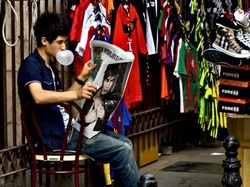 'Lovely jubbly'
'Lovely jubbly'  RSS Feed
RSS Feed